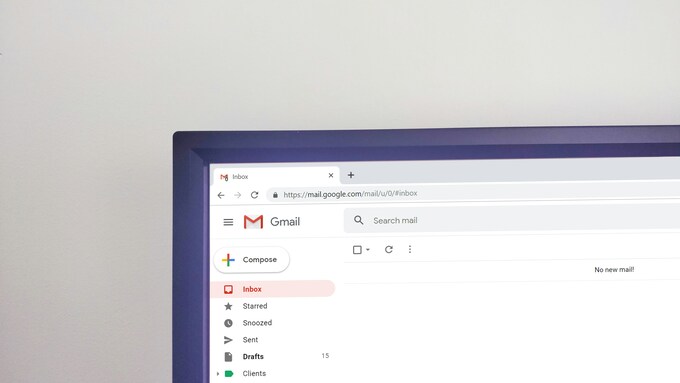
Planning events for non-profits can feel like navigating a maze without a map. The stakes are high, the budgets are tight, and every detail counts. From fundraising galas to awareness campaigns, these gatherings hold the potential to drive change and inspire communities. Yet, many organizations grapple with resource limitations and time constraints that make executing successful events challenging.
But what if there was a way to lighten this load? Enter artificial intelligence—a tool that’s reshaping industries by streamlining processes and enhancing decision-making. For non-profits looking to amplify their impact while minimizing stress, AI-powered solutions might just be the game changer they need. Let’s explore how technology can transform event planning in the non-profit sector into an efficient and rewarding experience.
The Challenges of Event Planning for Non-Profits
Non-profit event planning often faces unique hurdles. Limited budgets can stretch resources thin, making every dollar count. This financial constraint adds pressure to create meaningful experiences that resonate with attendees.
Time is another significant challenge. Non-profits typically operate with lean teams, juggling multiple roles and responsibilities. Finding the hours needed to plan a successful event can feel daunting.
Engaging volunteers poses its own difficulties as well. While passionate individuals are eager to help, managing their availability and skills requires careful coordination.
Attracting donors or participants amid crowded event calendars can be tricky. Standing out in a sea of competing causes demands creativity and strategic marketing efforts.
Measuring success remains complex for many non-profits. Without clear metrics or analytics tools in place, understanding the impact of an event on fundraising goals can lead to uncertainty about future initiatives.
How AI can Help with Event Planning
AI technology has revolutionized many industries, and non-profit event planning is no exception. By harnessing the power of AI, organizations can streamline their processes significantly.
For instance, predictive analytics can assess past event data to forecast attendance numbers. This helps in making informed decisions about venue size and resource allocation.
Chatbots are another game-changer. They provide instant responses to inquiries from attendees, volunteers, or sponsors 24/7. This enhances communication without straining staff resources.
AI-driven platforms also facilitate personalized marketing strategies. Organizations can target specific demographics based on interests and previous engagement levels, maximizing outreach efforts.
Automation tools simplify logistical management tasks like registration tracking and task assignments. With less manual work required, teams can focus more on building relationships with supporters rather than getting bogged down by administrative details.
Case Studies: Examples of Successful Implementation of AI in Non-Profit Event Planning
One notable case is the American Red Cross. They harnessed AI algorithms to analyze donor data, optimizing their fundraising events. By predicting attendance and preferences, they tailored experiences that significantly boosted engagement.
Another example is a local animal shelter using AI for volunteer coordination. The platform streamlined scheduling and matched volunteers with tasks based on their skills and availability. This not only increased participation but also enhanced the overall experience for everyone involved.
Similarly, a cultural organization implemented chatbots during their annual gala. These bots provided real-time information about event schedules and ticketing inquiries, improving communication without overwhelming staff.
These instances highlight how AI can enhance efficiency while fostering community connections within non-profits through innovative solutions tailored to specific needs.
Tools and Platforms for AI-Powered Event Planning
When it comes to AI-powered event planning, a variety of tools can streamline the entire process. These platforms harness technology to manage logistics effortlessly.
One standout is Eventbrite. It integrates AI for ticketing and attendee management, helping non-profits focus on their mission rather than administrative tasks.
Another notable option is Whova. This platform utilizes smart matchmaking algorithms to enhance networking opportunities among attendees, creating valuable connections that can last beyond the event.
For budget-conscious organizations, Splash offers customizable templates powered by AI analytics. This helps in designing impactful marketing campaigns while staying within financial constraints.
Cvent stands out with its robust data analysis capabilities. By leveraging participant insights and feedback, non-profits can refine future events based on actual performance metrics.
These innovative tools not only save time but also empower teams to execute more effective strategies tailored specifically for their audience’s needs.
Considerations for Implementing AI in Non-Profit Event Planning
When considering AI for non-profit event planning, budget is a primary concern. Non-profits often operate on tight financial constraints. Investing in new technology must be carefully assessed against potential benefits.
Data privacy also warrants attention. Collecting personal information from attendees can pose risks. Ensuring compliance with regulations like GDPR is crucial for maintaining trust.
Training staff to use these technologies effectively cannot be overlooked. Introducing AI tools requires time and effort to ensure everyone feels comfortable navigating the software.
Integrating AI solutions with existing systems must be seamless. Compatibility issues can disrupt planned events and create unnecessary stress among team members.
Balancing innovation with practical limitations will shape successful implementation strategies that enhance event outcomes while staying true to non-profit missions.
Conclusion
Non-profit event planning is a complex and multifaceted process. Organizations face numerous challenges, from budget constraints to volunteer management. Yet, the advent of AI technologies has opened up new avenues for efficiency and creativity in this space.
Implementing AI can streamline tasks such as registration, ticket sales, and marketing outreach. These tools not only save time but also enhance the attendee experience by providing personalized recommendations and insights based on data analysis.
Numerous case studies showcase non-profits that have successfully integrated AI into their event planning strategies. From increased engagement rates to improved fundraising outcomes, these real-world examples are inspiring. They demonstrate how leveraging technology can lead to tangible results.
As organizations explore various tools and platforms available for AI-powered event planning, they should consider factors like usability, cost-effectiveness, and integration capabilities with existing systems. Choosing the right solution is crucial for maximizing benefits while minimizing disruptions.
Adopting AI in non-profit event planning isn’t just about keeping pace with technology; it’s about enhancing mission-driven work through innovative solutions. With careful consideration and strategic implementation, non-profits can elevate their events to new heights while fostering deeper connections within their communities. Embracing this technological shift might very well be a game-changer in achieving greater impact—one successful event at a time.

